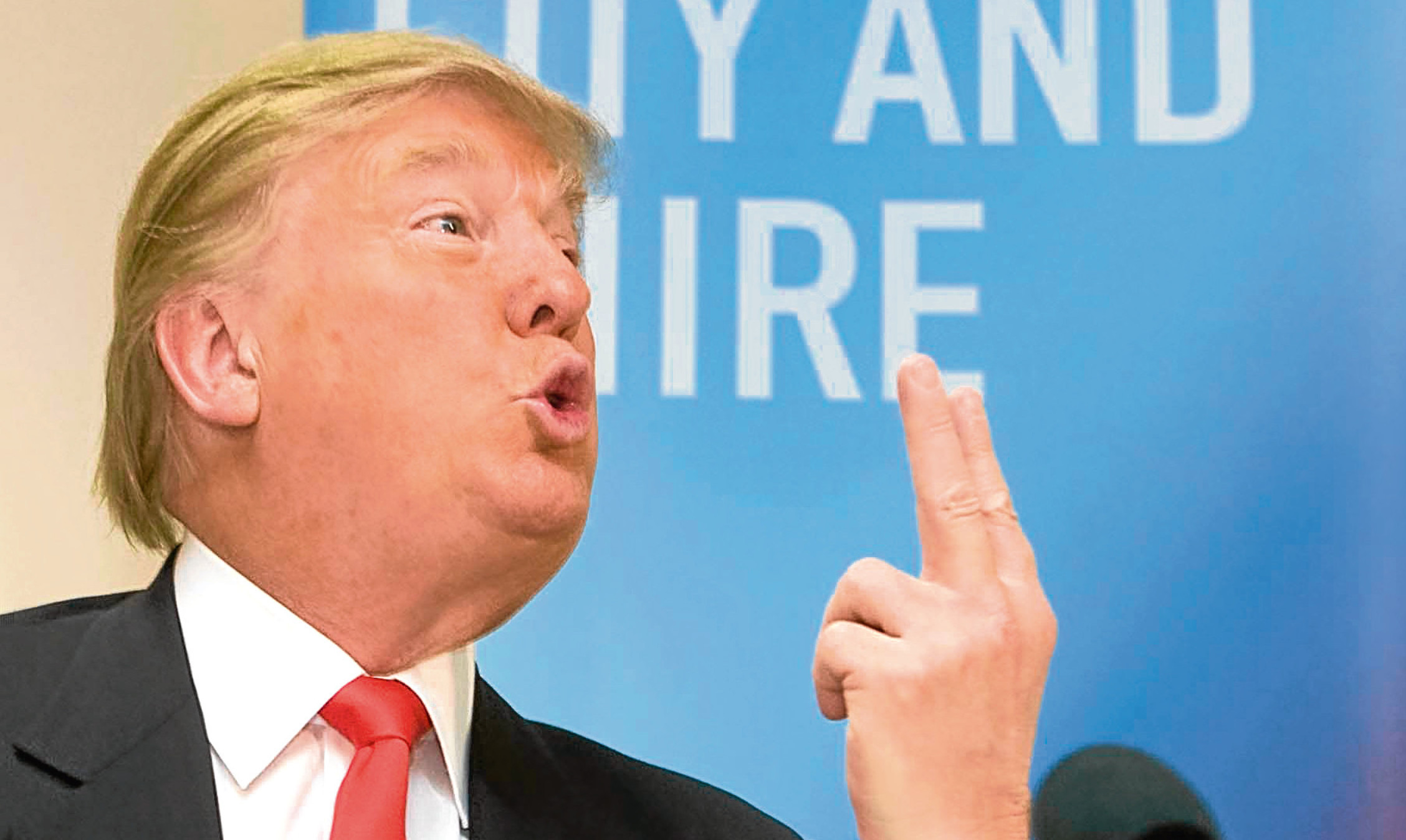One of the SNP’s MPs admitted recently that she had to hold her nose while toeing the party line and voting to remain in the EU in June.
Mhairi Black, elected to the seat of Paisley and Renfrewshire South in last year’s general election, is just learning that personal principles don’t always match political duties.
Her boss in Scotland, Nicola Sturgeon, has more experience in the art of compromise but there is no doubt that she too would have been holding her nose as she wrote her congratulatory note to Donald Trump.
“Dear President-Elect Trump, I am writing to convey my congratulations on your election,” she began, before going on to mention his family ties to Scotland and the close economic bonds between this country and the States.
While she managed to make a bit of a point about shared values of “equality, tolerance, diversity and human rights”, the letter can in no way have reflected her true feelings for the new leader of the free world.
These have been spelled out on numerous occasions, including in the Scottish parliament last week, when she joined the general dismay felt by fellow MSPs – “this is not the outcome I hoped for,” she said.
An outspoken supporter of Hillary Clinton, Sturgeon had found so many of Trump’s comments “deeply abhorrent” and she said: “I never want to be, I am not prepared to be, a politician that maintains a diplomatic silence in the face of attitudes of racism, sexism, misogyny or intolerance of any kind.”
Last year the First Minister stripped Trump of his role as a business ambassador for Scotland, after he said he wanted to ban Muslims from entering the US.
It is unlikely the 45th President was following proceedings in the Scottish Parliament last week and Sturgeon’s missive will probably not take precedence in his postbag.
In any event, his opinions of the Nationalist administration have been coloured, possibly for good, by his unhappy association with Sturgeon’s predecessor.
Alex Salmond famously fell out with Trump over a row involving a golf course and wind turbines in the North-East. Sturgeon’s one opportunity to make amends, if she had wanted to, was when the Trump circus rolled up at his other golf course in Turnberry in the summer – but she stayed away.
That’s no surprise, given his behaviour on the campaign trail but her belated attempt to engage with him now appears doomed, so why bother?
International diplomacy is best left to those with more clout and much more expertise. The same can be said for forging global trading alliances.
A supposed £10 billion deal between Scotland and China collapsed in August – though as it was mired in SNP secrecy, the whole picture is only just coming to light – leaving Sturgeon red-faced and looking for someone else to blame.
Two Chinese firms cancelled a Memorandum of Understanding with the Scottish Government, in what the Chinese are said to have described as a “shambles”.
The Nationalists accused opposition parties of creating a climate of hostility over one of the companies’ records on human rights but it is Sturgeon who has emerged as inept – naive at best – for closing rather than opening doors to inward investment.
It is well known that she likes to perform on a bigger stage than Scotland can offer and she has been dubbed “Ayr Force One” for her frequent trips to London and beyond.
This would all be very well if, having done a brilliant job at home, she had plenty of time on her hands. But her lack of attention to devolved matters is becoming the hallmark of her tenure in Bute House.
Despite winning a raft of new powers, her government has introduced no meaningful reforms in areas such as health, education or justice.
Now the SNP has chosen not to make use of the additional welfare responsibilities handed to Scotland as a result of the post-independence referendum Smith Commission, which produced the 2016 Scotland Act.
Angela Constance, the Social Security Secretary, has asked the Department of Work and Pensions to keep control of several benefits until 2020, although they will technically be within her remit from next year.
“They demanded welfare powers at Holyrood, now they seem terrified of getting on with it,” said the Tories’ welfare spokesman in Scotland, Adam Tomkins.
Providing a Scottish solution is evidently harder than the Nationalists thought it would be. But if Sturgeon wants to put Scotland on the world map, it is in the detail of her domestic agenda that she will most likely be noticed.
A small country punching above its weight, in the quality of its schools or its health provision or its social care, might win her the universal recognition she craves. And it wouldn’t go down too badly here either.
